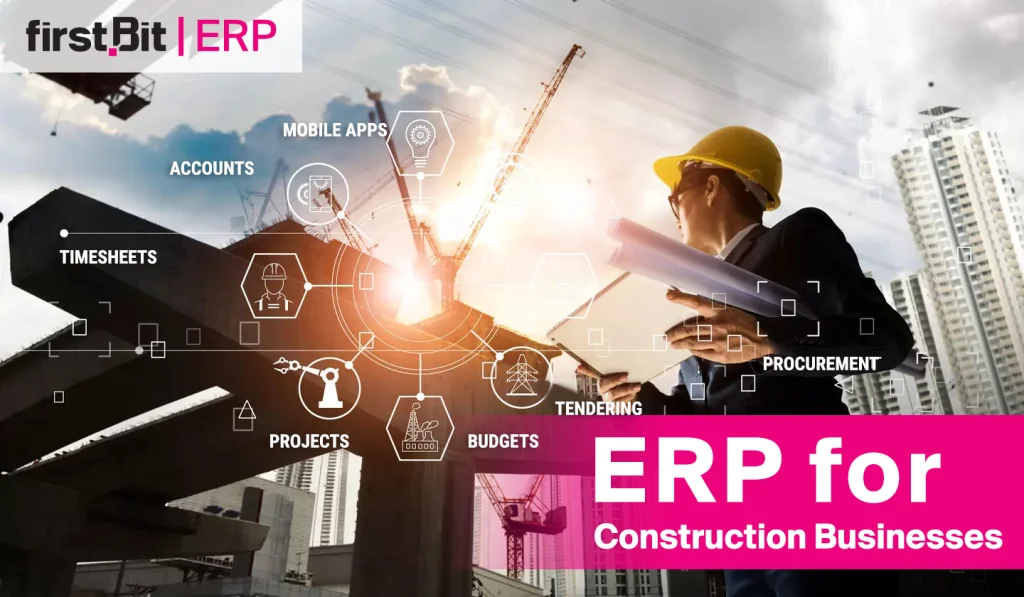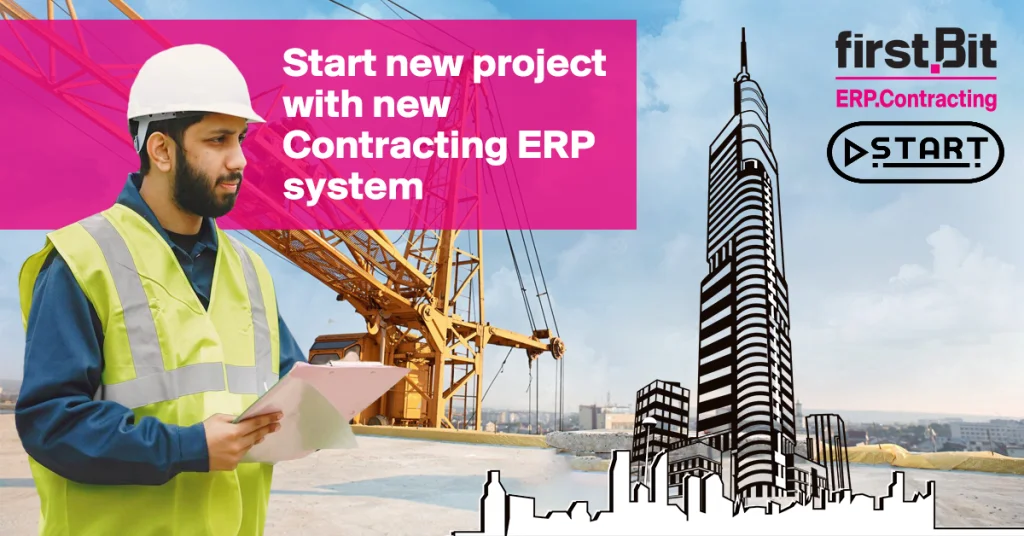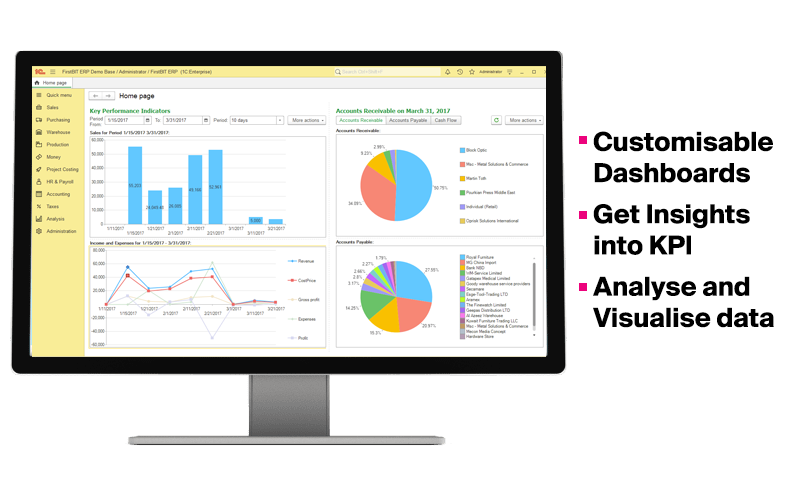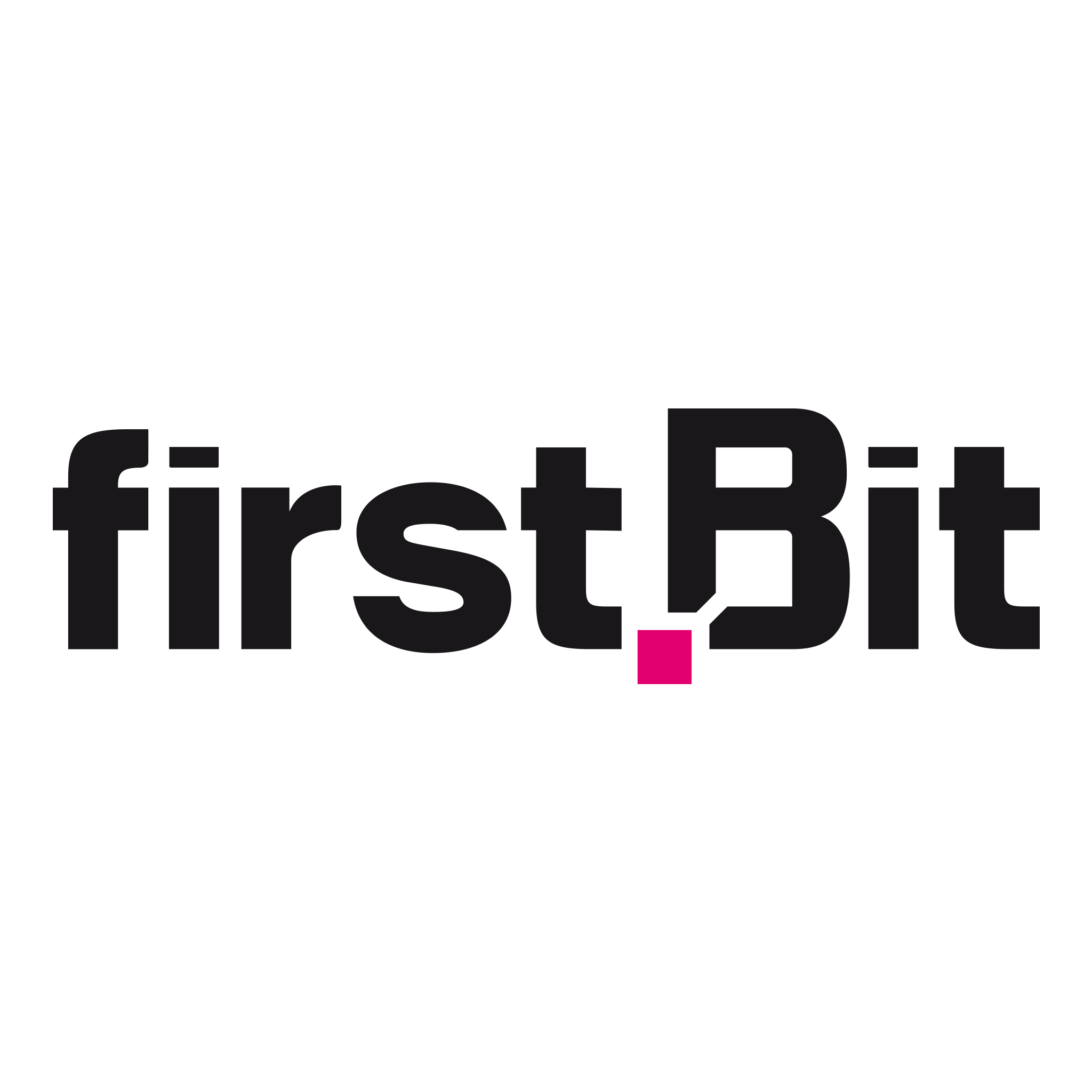
A construction enterprise information system is one of the most important tools for keeping track of your projects. A good construction ERP system helps you manage your business processes, including sales, estimations, purchases, invoicing, accounting, and HR management.

But how to choose an ERP system that meets your business’s unique needs? To make things easier, we have created a list of questions to help you narrow your choices! Let’s get started!
Questions to Help You Choose an ERP System
As a leading provider of ERP for construction industries in the UAE, we believe every company should ask these questions before deciding.
1 - How Well Does the ERP Software Help Your Teams Collaborate?
The right ERP system improves collaboration across teams and departments. This includes team members from your organization, subcontractors, and other suppliers. It brings data together across projects and locations, so everyone involved can see what's happening, no matter where they are in the world.
Here are some questions you should ask the vendor:
-
How does the software bring all the teams together? For example, can you create shared document libraries for everyone, or does it offer chat rooms?
-
Does it allow you to manage multiple projects and see them all in one place, or are you forced to jump between multiple dashboards?
-
Can you assign tasks and collaborate with your team on a project as it progresses, or do you need a third-party tool like Slack or Trello?
-
Can you invite anyone specifically to collaborate on the project?
2 - Do the Benefits Justify the Cost?
Implementing construction ERP software is itself an expense. So, you would want to ensure that it brings a positive return on investment in terms of time savings and productivity.
Before we move forward, it is vital to know the costs associated with ERP:
-
Software licensing fees (for on-premises software)
-
Implementation expenses
-
Training expenses
-
Ongoing costs (including subscriptions for SaaS)
When you choose an ERP system, make sure it justifies these costs. To do that, ask your vendor these two questions:
-
Are there potential cost savings? How much? How do we know?
-
What time savings can I expect from this tool? They’ll be able to give a rough estimate based on their past clients or share some case studies.
3 - Is There a Trial Period?
A trial period is an excellent way to test the software before committing to it. A trial allows you to experiment with the features and see how well they fit your business needs. It helps you determine if there are any problems or bugs in the software, so you can solve those issues quickly when you decide to buy it.

4 - How Will It Impact Bottom-Line Results?
We all want the maximum benefit in as little time as possible. Therefore, asking how it impacts the bottom-line results makes sense.
Don’t forget to involve your team in the evaluation process and make them a part of the buying decision. This will make them feel they’re a part of something big and help increase the adoption rate.
Ensure that the software is easy-to-use, intuitive, and scalable. If not, it can lead to user frustration that results in a loss of productivity or, even worse—a costly error that could have been prevented had the right questions been asked upfront!
5 - Is It Convenient to Use?
You wouldn’t want your employees to spend hundreds of hours learning how to use the software. Therefore it is essential to check the system's convenience and ease of use.
The following questions will help you determine if the construction ERP is convenient to use:
-
Does it have a simple, intuitive interface that's easy to navigate and learn?
-
How easy is it to get started, given the massive chunks of data you need to feed the system and integrate all your current applications?
-
Can you get help when you need it? For example, is there a way for users who aren't familiar with the ERP software, like contractors or workers, to find answers on their own before contacting support staff? If not, how long do they have between asking questions and getting a solution (or being able to find one)?
-
Can you contact someone in case of emergencies or urgent situations?
6 - Do Other Construction Companies Use It?
It's important to know if other construction companies in your city or country use the same ERP solution as yours.
If so, how long have they been with them? What do they think of it? Have they had positive results in their workflow because of ERP?
These questions will help give you a better idea of what kind of service and support package they offer—which is key when choosing an ERP system.
What to Look For in an Effective Construction ERP?
Now that you know how to pick an ERP system and the questions to ask your vendor, let’s look at the must-haves of an effective construction ERP.
-
Project lifecycle management: It should include resource management (e.g., labor and equipment), cost management (billing, invoicing, and payment), risk management (tracking unforeseen events), and change management (updates to projects as they progress).
-
Real-time project updates: You should be able to see the progress of your project and track materials and expenses in real-time. This is a great way to monitor how things are going and ensure you stay on track. A cloud-based ERP can help you do that.
-
Finance and accounting: A good ERP should offer a finance module that helps create budgets and forecasts, manage cash flow and AP/AR, and generate tax reports. For instance, if you’re based in Dubai, you’d want a tool that helps create VAT reports in a click.
-
Mobile access: In today’s mobile world, managing the job site on the go is crucial. You need to access the data you need when you need it—whether it’s from your office or a different part of the world.
-
CRM: CRM is the backbone of customer-centric business processes. It has many functions, but it all boils down to this: CRM helps you manage your customers better.
-
HR & Payroll: A good construction ERP system should allow you to manage your employees, from hiring and onboarding to exit, including subcontractors and temporary workers. It should let you manage payroll for employees of all levels, including executives, hourly workers, and subcontractors.
We Are Here to Help: Getting Started with FirstBit ERP Software
At FirstBit, we’ve been helping businesses transform their processes through comprehensive software solutions and a full range of IT services for over two decades.
Not only do we have the features mentioned above, but construction companies across the UAE are using our software.
FirstBit ERP is an FTA-approved, VAT-compliant software that makes it easier to comply with UAE’s laws and regulations. The best part? It is available both on-premise and on the cloud, giving you complete flexibility over the deployment method.
Ready to get started? Connect with our experts to understand how FirstBit ERP can help streamline your construction business processes and increase profits!
Video from YouTube: YouTube video player
of your processes and scale your business with FirstBit ERP now!









